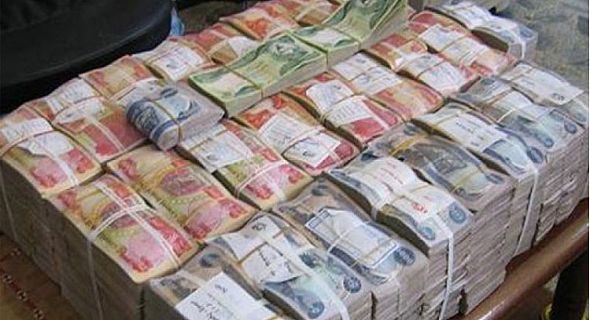Official denial of the spread of the “counterfeit” Iraqi dinar
Official denial of the spread of the “counterfeit” Iraqi dinar
2025-02-19
 In recent days, Iraqi markets have witnessed a wide wave of warnings about the spread of large quantities of counterfeit (25) thousand Iraqi dinars, said to be coming from Iran. While citizens and traders confirm that they have noticed an influx of these suspicious banknotes, the Central Bank of Iraq has categorically denied these allegations, stressing that counterfeiting the national currency is extremely difficult due to the printing standards followed.
In recent days, Iraqi markets have witnessed a wide wave of warnings about the spread of large quantities of counterfeit (25) thousand Iraqi dinars, said to be coming from Iran. While citizens and traders confirm that they have noticed an influx of these suspicious banknotes, the Central Bank of Iraq has categorically denied these allegations, stressing that counterfeiting the national currency is extremely difficult due to the printing standards followed.
Central Bank: There is no truth to the spread of counterfeit currency
A responsible source in the Central Bank of Iraq, who refused to reveal his name, confirmed in a statement to “Baghdad Today” that “the talk about the widespread circulation of counterfeit Iraqi money of the denomination of (25) thousand dinars coming from Iran is absolutely incorrect,” adding that “the international standards that Iraq adopts in printing currency make it extremely difficult to counterfeit it, especially large denominations.”
The source stressed that “the Central Bank’s oversight teams, in cooperation with the security agencies responsible for combating economic crimes, are constantly working to confront attempts to counterfeit currency, and have been able to thwart many attempts before they spread in the markets,” noting that “any counterfeit currency that is circulated is easily exposed to citizens due to the difficulty of imitating the security details present in the national currency.”
Traders and citizens’ opinion: Concerns remain despite denial
In contrast, a merchant working in the Shorja market in Baghdad said, “There is increasing talk among merchants about the influx of counterfeit (25) thousand dinar notes, as some merchants have noticed slight differences in the texture and colors of the banknote,” noting that “merchants are currently dealing with extreme caution when receiving this denomination.”
For his part, the owner of an exchange office in the Karrada area explained that “fears of the spread of counterfeit currency are not new, but in recent days complaints have increased from some citizens who discovered that they had obtained counterfeit papers when dealing with them in some shops,” stressing that “these cases are still limited, but there is a need for stricter oversight by the Central Bank and the security services.”
Experts warn of economic repercussions
Economic expert Mudhar Al-Sabti said in a press interview that “the spread of counterfeit currency, even if it is on a small scale, could affect citizens’ confidence in the local currency and lead to an increase in demand for the dollar as a safe haven,” adding that “the matter requires greater transparency from the Central Bank, so that periodic data is published that shows the extent of counterfeiting attempts and the extent of the success of official bodies in combating them.”
Government and banking procedures
In this context, a high-level security source confirmed to Baghdad Today that “the agencies responsible for combating economic crimes have tightened their control over the markets, especially exchange offices, to ensure that no counterfeit currency is circulated,” noting that “several people involved in attempts to pass counterfeit banknotes have been arrested during the past period.”
Between official denial and popular fears
While the Central Bank of Iraq insists that there is no widespread circulation of counterfeit dinars, concerns persist in the markets with some traders speaking of limited cases of counterfeiting. As the controversy escalates, there remains a need to strengthen financial oversight and deal transparently with citizens to ensure that the Iraqi public’s confidence in its national currency is not affected.
burathanews.com
